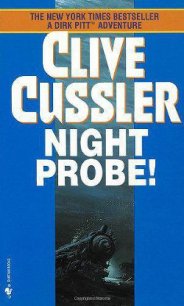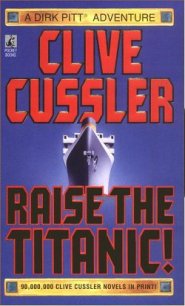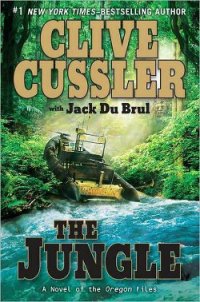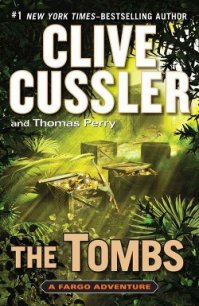The Storm - Cussler Clive (книги без сокращений .TXT) 📗
He and Joe descended one more flight of stairs and opened a door. They now stood below the water level, looking into the tank and the cross section of the obstruction through the tank’s clear acrylic side.
“I’ve seen this before,” Kurt said. “It’s an embankment dam. The top layer is crushed rock and sand. The gray core in the center is most likely waterproof clay. The bottom liner is known as a cutoff curtain. It’s usually made of concrete, designed to keep the water from seeping under the dam.”
He pointed to the high water behind the dam. “They’re even filling the high side like it’s a reservoir.”
“Why would these guys be modeling a dam?” Joe asked.
“I’m not sure, but I have a feeling we’re not going to like the answer.”
The sound of a generator starting up caught their attention. A moment later the main overhead lights came on and the room brightened. Through the water Kurt saw the distorted shapes of other men in white hazmat suits on the far side of the pool.
“We better look busy,” Kurt said.
Joe grinned. “I’m pretty sure there’s an exit sign I need to inspect.”
“That sounds like a job for two.”
They climbed back up the stairs and slipped out of the observation dugout. Back on the pool deck, they waved to the men across from them in identical suits, received a wave in return and then entered the locker room once again.
“What now?” Joe asked.
Through a window Kurt saw another group entering the room. These men were dressed sharply in fine Arab clothing. Another man dressed in white was pointing out this and that to them. A bearded man in a plain gray caftan trailed behind them.
“That’s Jinn,” Kurt said, basing his guess on a surveillance photo he’d seen.
“Who are these other guys?” Joe asked.
“They look like dignitaries on a tour,” Kurt said.
Jinn led the Arab men around the pool and over to the very stairway Kurt and Joe had just ascended. They went down to the underwater viewing area.
“They’re here for a demonstration of some kind,” Kurt whispered.
“I hate to sound like the reasonable one,” Joe began, “but maybe we should beat a hasty retreat while they’re otherwise occupied.”
Kurt shook his head. “Sage advice, my friend. Except we now have a front-row seat, and they’re about to show us what they’re planning. I think it behooves us to stick around, keep the suits on and try to blend in.”
“Behooves us?”
“It was the word of the day on my calendar last week. Never thought I’d get a chance to use it.”
“Glad to hear you’re expanding your vocabulary. But what if something behooves one of them to ask us what we’re doing here? Or to perform some task we don’t know how to do, like turn some big machine on?”
“We’ll just press a lot of buttons, throw some switches, and pretend we’re incompetent,” Kurt said.
“Go with our strengths, then.”
“Exactly.”
Kurt would have tried to reassure Joe further, but additional machinery starting up dragged his attention back to the window.
He saw Jinn gesturing and speaking, but he couldn’t make out the words through the glass.
“This is like watching TV with the mute button on,” Joe said.
At the far end of the pool, a large yellow drum was being secured to a hoist and lifted by an overhead crane. By the caution they showed, and the fact that only the white-suited men got anywhere near it, Kurt figured he knew what was in that drum.
“Sound or no sound,” he said, “I think we’re about to see a show.”
CHAPTER 22
IN THE CAVERNOUS BAY SURROUNDING THE TANK, JINN’S words to Mustafa of Pakistan and Alhrama of Saudi Arabia echoed with a strange dissonance. He’d managed to be gracious and munificent—at least in his own mind—despite wanting to choke them with his bare hands. But he was ready to send them a message. In fact, he’d decided to send two.
Sabah leaned closer. “Separate them,” he whispered and then stepped back, remaining behind Jinn and out of sight.
Jinn did not react to the words. He had agreed to this show on Sabah’s request. But he would decide what must occur now.
“You see in the tank before you a mock-up of the Aswan High Dam,” he said. “It will soon be the focal point in a demonstration of my powers.”
“I don’t understand,” Alhrama said.
“General Aziz has emboldened you with his refusal to pay what he promised. He has his reasons, but prime among them is the dam. As long as it exists, Egypt has a five-year supply of water stored up. But Aziz has little understanding of either my power or my wrath.”
Jinn lifted a radio to his mouth and pressed the talk switch. “Begin.”
The machinery spooled up again. The crane shifted and moved the barrel out over the water and into its final position. A cable attached to the bottom half of the yellow drum was reeled in and the drum began to tip.
The silver sand began to pour out; millions upon millions of Jinn’s microbots, pouring into the tank and dispersing like sugar in tea. The water began turning murky and gray.
“Give the command,” Jinn said.
In a control room high above, someone pressed a button and sent out a coded command.
The murky water began to stir. The gray cloud coalesced into a tighter pattern and then moved toward the edge of the dam like a dark spirit drifting through the water.
“What’s happening?” Mustafa asked.
“The dam is made of aggregate,” Jinn said. “Easy to put together and held in place by its great weight, but not completely impervious.”
As he spoke, the silver sand adhered to the edge of the dam in two separate places: one spot near the top of the dam and a second about one-third the way down the sloping wall. After a minute or so, the progress of the tiny machines became noticeable in the cross section of the dam.
“Remarkable,” Alharma said, “the speed with which they penetrate.”
“The actual dam is much thicker of course,” Jinn pointed out. “But the effect will be the same, it will only take longer. A matter of hours, I should think.”
Within minutes the leading fingers of the horde had reached the central core of the dam. Progress slowed dramatically, but the etching continued until a pinprick had been bored through to the other side.
In another minute or two the sand had reached the right edge of the aggregate and broken through. A trickle of water began, quickly accelerating. Soon the weight of the water behind the dam was forcing out a jet of liquid through the tiny gap.
“This effect will be heightened in the real event,” Jinn said. “The weight of the water behind Aswan numbers in the trillions of tons.”
Even in the scale model, the breach was quickly being scoured and enlarged. Soon the gap was two inches in diameter and then four. Moments later a section of the top dropped in, taking the miniature road and cars along with it. The water from the high side of the tank flowed through the gap, pouring over the far side like a waterfall. But it was the lower tunnel through the dam that made things interesting.
As the water surged over the top, it reached a point of equilibrium, scouring downward far less rapidly where the waterproof clay core resisted the erosion.
“The dam is not falling,” Mustafa pointed out.
“Watch the lower tunnel,” Jinn insisted.
The lower tunnel finally made it through to the far side, and in minutes the higher-pressure water from the deeper part of the tank had widened the lower tunnel from a pinprick to a few inches in diameter.
Water blasted out the far side in a fine spray. After another minute, the core collapsed in the center, creating a deep V-shaped groove as the material above it caved in.
A huge wave surged through and crashed into the narrow channel that represented the Nile. It flooded the miniature embankments, sweeping away dirt, sand and small boxes that represented structures.




